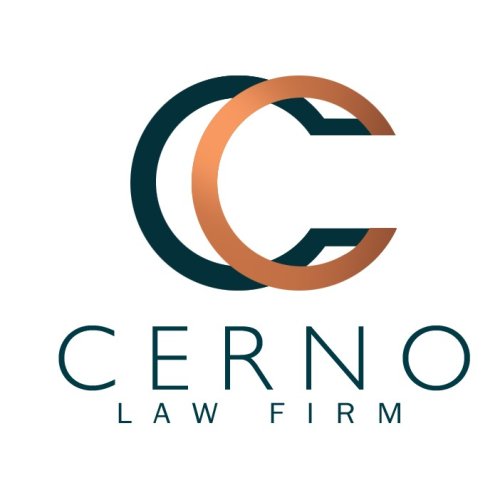Best Citizenship Lawyers in Luxembourg
Share your needs with us, get contacted by law firms.
Free. Takes 2 min.
Or refine your search by selecting a city:
List of the best lawyers in Luxembourg
About Citizenship Law in Luxembourg
Citizenship in Luxembourg, also known as nationality, is governed by a series of legal requirements aimed at ensuring the integration of new citizens into Luxembourgish society. Luxembourg offers a path to citizenship through birth, ancestry, marriage, or naturalization. The country’s laws emphasize dual citizenship, allowing individuals to retain their citizenship of origin. The citizenship process in Luxembourg is known for being welcoming and inclusive but is also structured and requires strict adherence to legal and procedural guidelines.
Why You May Need a Lawyer
Seeking legal advice is often beneficial in a variety of scenarios related to citizenship in Luxembourg. Some common situations include:
- Complex Applications: Navigating the application process for citizenship through naturalization can be daunting, especially for those unfamiliar with Luxembourgish laws.
- Legal Documentation: Ensuring that all required documents are accurate and comply with legal specifications can be challenging without professional help.
- Residence Requirements: Understanding the residency requirements and related obligations for citizenship applications can be complex.
- Language Requirements: Applicants must demonstrate proficiency in Luxembourgish, which might require legal clarification and advice.
- Dual Citizenship Conflicts: Legal assistance may be necessary to resolve potential conflicts between Luxembourgish citizenship and the individual's original nationality.
Local Laws Overview
The legal framework for citizenship in Luxembourg is outlined under the Nationality Law, which came into effect on April 1, 2017. Key aspects include:
- Naturalization: Applicants must demonstrate five years of residence within a seven-year period and show a command of Luxembourgish at a certain proficiency level.
- Recovery of Citizenship: Descendants of Luxembourgish citizens can reclaim citizenship under certain conditions.
- Declaration of Nationality: Certain immigrants can declare their intent to become Luxembourgish citizens through specific provisions based on residence or family ties.
- Dual Citizenship: Luxembourg allows dual or multiple citizenships, which means applicants do not have to renounce their previous citizenship(s).
Frequently Asked Questions
1. Can I apply for Luxembourgish citizenship if I was born abroad?
Yes, if you were born to a Luxembourgish parent, you may be eligible for citizenship, even if you were born abroad.
2. What is the language requirement for citizenship in Luxembourg?
Applicants must demonstrate proficiency in Luxembourgish, typically through a language test or course completion certificate.
3. How can a lawyer help me with my citizenship application?
A lawyer can assist by ensuring your documentation meets legal standards, providing guidance on eligibility criteria, and helping prepare for language assessments.
4. Is it necessary to renounce my original nationality?
No, Luxembourg allows for dual citizenship, so renouncing your original nationality is not required.
5. What is the typical processing time for a citizenship application?
The processing time can vary but typically takes between 6 to 12 months after submitting a complete application.
6. Can citizenship be revoked in Luxembourg?
Yes, citizenship can be revoked under certain conditions, such as fraud or false representation during the application process.
7. Are there fees associated with citizenship applications?
Yes, there may be fees for application processing, document certification, and language assessments.
8. What are the residence requirements for naturalization?
You must have lived in Luxembourg for five of the last seven years before applying.
9. Can minors apply for citizenship?
Yes, minors can acquire citizenship through their parents or through specific provisions if born and raised in Luxembourg.
10. Is there any aspect of the application that requires special attention?
Ensuring all documentation is complete and accurate is crucial, along with meeting language proficiency and residence requirements.
Additional Resources
For further assistance and information, consider reaching out to the following resources:
- The Ministry of Justice of Luxembourg: Provides official guidance and resources regarding nationality laws.
- AEmb Services d’Immigration: The state's immigration services office can provide assistance with practical requirements.
- Luxembourg Bar Association: Can connect you with lawyers specializing in citizenship matters.
Next Steps
If you believe you need legal assistance with citizenship in Luxembourg, consider the following steps:
- Consult with a Lawyer: Seek a consultation with a professional experienced in Luxembourg nationality law to assess your specific circumstances.
- Gather Documentation: Begin compiling necessary documents such as birth certificates, residency proof, and language certificates.
- Understand Eligibility: Familiarize yourself with the specific eligibility requirements that affect your pathway to citizenship.
- Plan for Language Assessment: If applicable, prepare for any necessary language assessments well in advance of your application.
- Monitor Timelines: Keep track of processing timelines and legal developments that could affect your application.
Lawzana helps you find the best lawyers and law firms in Luxembourg through a curated and pre-screened list of qualified legal professionals. Our platform offers rankings and detailed profiles of attorneys and law firms, allowing you to compare based on practice areas, including Citizenship, experience, and client feedback.
Each profile includes a description of the firm's areas of practice, client reviews, team members and partners, year of establishment, spoken languages, office locations, contact information, social media presence, and any published articles or resources. Most firms on our platform speak English and are experienced in both local and international legal matters.
Get a quote from top-rated law firms in Luxembourg — quickly, securely, and without unnecessary hassle.
Disclaimer:
The information provided on this page is for general informational purposes only and does not constitute legal advice. While we strive to ensure the accuracy and relevance of the content, legal information may change over time, and interpretations of the law can vary. You should always consult with a qualified legal professional for advice specific to your situation.
We disclaim all liability for actions taken or not taken based on the content of this page. If you believe any information is incorrect or outdated, please contact us, and we will review and update it where appropriate.
Browse citizenship law firms by city in Luxembourg
Refine your search by selecting a city.










